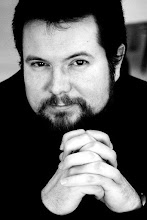I have voted in every federal and provincial election in
1. A great many, if not most, voters are woefully under-informed about the issues.
2. A great many, if not most, voters vote based on things other than the issues, such as who their parents voted for.
3. Modern politics features very little debate over substantial matters and leans instead of ad hominem attacks and generic “messages” that ignore the serious and complex problems that we face.
In response to this, I could only feebly invoke the old saw that democracy is the worst system of government except for all the others. Shouldn’t there be a better way? I found myself frequently thinking back to the suggestion made by H.L Mencken that legislators should be chosen like jury members: at random and against their will.
But my thinking on democracy may be changing, and my inspiration came from a strange place: David Mamet’s play about university politics, Oleanna. In the play, a pompous professor, who has made his career by criticizing higher education as, among other things, a form of torture, is attacked by a student for various abuses of power. Her attacks are unfair, but he is finished before he even begins to defend himself because he has already refuted his own defense: which is the system itself is a fair one and justifies his exercise of reasonable power over his students.
In other words, what he should point out is that professors should have authority at universities because they have earned PhDs, and because they have won their positions over those less qualified, and because they have been reviewed repeatedly prior to earning tenure. But, comes the reply, does it not happen that poorly qualified candidates are hired? Yes. Do not some incompetent or mean-spirited professors earn tenure despite the reviews? Yes, they do. But the system itself is not a bad one, even with its imperfections, and it’s probably better than the alternatives.
Democracy is this way, too, I think. If a member of parliament were asked what gives her the right to enact laws, she would rightly say that being elected by her constituents gives her the right. Do some foolish and venial people get elected? Of course, but the system itself is a good one, and better than the alternatives. And not just better than the alternatives (as the old saw has it) but noble: the people choose who will rule on their behalf; the governors are responsible to those they govern.
All great endeavours are compromised daily by the quotidian reality of human life. But we persevere because the ideas themselves – justice, democracy, education – are worth holding onto.
Next election, I will be voting.
